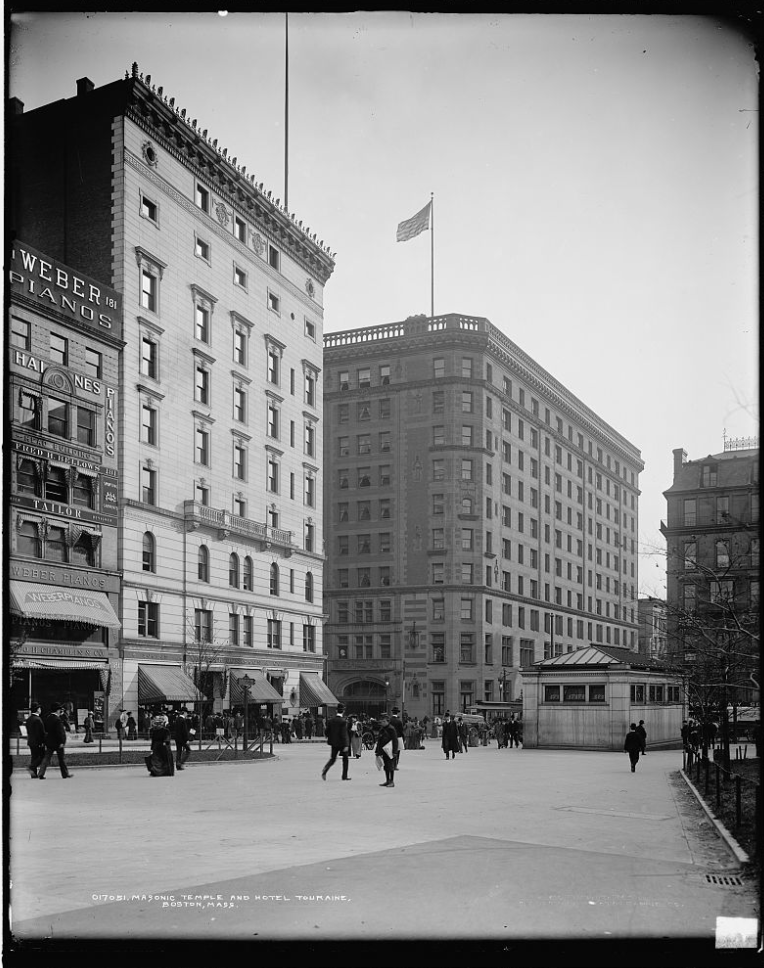Boston's Secret Society 🤫 The Freemasons and Their Influence
Boston Masonic Temple, Tremont St, 19th century
Boston, with its deep roots in American history, is a city filled with secrets and stories that stretch back centuries. Among these is the intriguing story of the Freemasons, a secret society that has influenced the city in numerous ways since the 18th century. This blog post will delve into the history of Freemasonry in Boston, exploring their impact and influence on the city's development and character.
The History of Freemasonry in Boston
Freemasonry, often simply called Masonry, is a fraternal organization that emerged from the stone masons' guilds of the Middle Ages. While the exact origins are shrouded in mystery, the organization's modern form began in London in 1717. The first Masonic Lodge in America was established just a few years later, in 1733, right here in Boston. Known as St. John's Lodge, it remains one of the oldest continuously operating Masonic lodges in the Western Hemisphere and is located at 186 Tremont Street, downtown.
Masons
The Freemasons' Influence on Boston
The Freemasons have left a lasting impression on Boston, not just in its history, but also in its architecture, culture, and more.
1. Infrastructure and Architecture
One of the most prominent and visible influences of the Freemasons in Boston is seen in the city's architecture and infrastructure. Freemasons, given their origins as stonemasons, have traditionally taken an active interest in the design and construction of buildings.
The Massachusetts State House, built in 1795, is a prime example of this. Its cornerstone was laid by the Grand Master of Massachusetts Masons, Paul Revere, in a full Masonic ceremony. The same goes for the Bunker Hill Monument, one of Boston's most iconic landmarks. The cornerstone was laid by the Freemasons in 1825, in a ceremony attended by around 100,000 people.
2. Social Institutions and Welfare
Freemasonry in Boston also has a long history of contributing to social institutions and welfare. Masonic lodges are known for their charity work, including funding schools, hospitals, and other public services.
In the 19th century, the Freemasons of Massachusetts founded the Masonic Education and Charity Trust, an organization that continues to support educational initiatives, disaster relief efforts, medical research, and community development projects. This commitment to public service has undoubtedly had a lasting impact on Boston's social infrastructure.
3. Cultural Influence
Beyond physical structures and social institutions, the Freemasons have also influenced Boston's culture. The Masonic values of brotherly love, relief, and truth have inspired many notable Bostonians over the centuries.
A striking example is the life and work of Prince Hall, a prominent abolitionist and leader in the free black community in Boston during the late 18th century. He was a tireless advocate for education and civil rights for African Americans, using his position in Freemasonry (he established African Lodge No. 459, later known as Prince Hall Freemasonry) to promote these causes.
Conclusion
The Freemasons' influence on Boston is woven into the fabric of the city, from its iconic architecture to its social institutions and cultural history. This secret society, far from being hidden away in the shadows, has had a lasting and tangible impact on the city of Boston, and its influence can be seen and felt even today. Their story is a critical part of Boston's history, showcasing how groups and organizations can shape a city and its culture over centuries.



